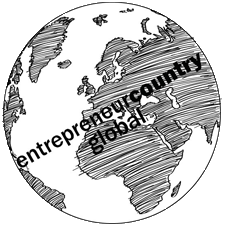Interview With Marco Veremis, Founder of Upstream
Marco Veremis, the leading figure of the Greek ICT industry and recently named Entrepreneur of the Year 2013 by EY, founded Upstream 12 years ago. Since then, Upstream, an Athens-based mobile monetization business, has become a world-leader in its field and an incubator for other entrepreneurial efforts such as Workable, the HR SaaS provider, and Persado, a pioneer at marketing language engineering.
EC asked him what he makes of the fact that he is the first businessman coming from the ICT sector to be named entrepreneur of the year.
MV: This award should be seen under the scope of the rapid growth of technology entrepreneurship in Greece the last 2 years. We have seen a great number of new businesses. It's a business model that didn't exist in Greece, doesn't require extensive capital and is based on individuals with special skills – mainly engineers and developers. This business model primarily produces an exportable product.
If we take into account the current liquidity issue of Greece, the fact that Greek engineers are of top level and that we are desperately looking for exports, it is easy to understand that technology is one of the areas that can truly contribute to a healthy growth. And I think it is important that a technology company, like Upstream, was recognized in this way.
Lately we're witnessing a large number of events on entrepreneurship and technology taking place in Athens. Upstream operates in 40 countries and has a turnover of around $130 million a year. What is the size of the industry in Greece?
Companies dealing with technology products have a turnover of around 700 million euros. Most of them don't actually employ more than 10 people according to HAMAC, the Hellenic Association of Mobile Application Companies. The sector is by no means negligible and imagine that I am just referring to the companies whose most employees are located in Greece. These are mainly export-oriented businesses, with more than 70-80% of their revenue coming from customers outside Greece.
At Upstream, 99.5 % of our revenue comes from abroad. When we first started in 2002 this figure was around 15 %.
You founded Upstream in Greece at a time when there were hardly any such businesses. Theoretically, a company like Upstream could operate anywhere in the world. Why did you choose Athens?
It clearly had to do with the fact that me and my partner, Alex Vratskides, come from Greece. Moreover, we knew we could build a team of top quality developers and engineers at a reasonable price here compared to UK or U.S.
The volatility of the tax regime and bureaucracy are the first things that come in mind when we are talking about entrepreneurship in Greece. Did you encounter some of these issues and if yes did they make you reconsider?
To be honest, I don't think that a very small business is facing these issues when it starts operating since it has zero profits. This is, at least, true for technology companies like Upstream. Tech companies invest for a time in their core product, which is of course software, therefore intangible. It's a product of knowledge more than anything else and, as a result the business is likely to have no profit during its first two or three years. So practically, the notorious problem of the Greek tax system does not to prevent you from starting up.
Beyond that, I am not sure that the problems of the Greek state are purely related to taxation or the public sector. It is a general truth that Europe is not structured in a way that can effectively support this type of business i.e. knowledge-intensive. These businesses do not have factories, heavy machinery etc. As a result, it is harder for them to access credit across Europe and especially in Greece. But I can't say that all this was a deterrent and the proof is that we stayed in Athens.
Upstream has not just thrived while based in Greece but has also spun out other successful businesses. Why is this?
At the end of the day, every company is a small community of people and I believe that their traits and qualities are formed in the context in which they operate. It is commonly said in Greece that Greeks do better abroad, why is that? Because when abroad, they operate in a framework that is far better than that which in many cases exists in our country. Something similar happens with a business, it is a microcosm of society. When this society is healthy and meritocratic and rewards talent, it becomes an incubator of capable people. I think this is what has happened with Upstream in practice. From our very first day, we created a group of extremely talented people. As a result, very capable people who can thrive, and at some point move on to do something of their own, join our company every day.
- Tags: blog, entrepreneurcountry, entrepreneurs, featured, global, Greece
